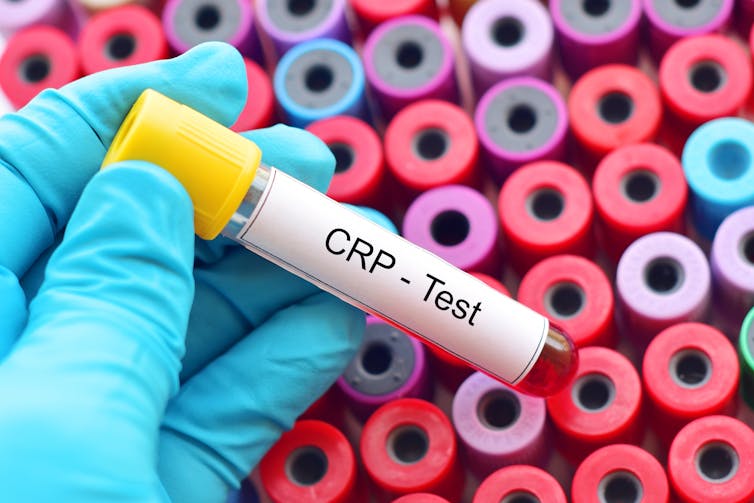
C-reactive protein is made in the liver. It rises when there is inflammation in the body. Jarun Ontakrai/Shutterstock
Being lonely or socially isolated can negatively affect your well-being. There is even research showing that it increase the risk of illnesses such as cardiovascular disease, dementia and depression.
Some researchers suggest that loneliness and social isolation lead to poorer health because they increase inflammation. Inflammation is when your body tells your immune system to produce chemicals to fight off infection or injury. It can also occur when you experience psychological or social stress.
Short-term, local inflammation – such as when you accidentally cut your finger – can be helpful, but having slightly elevated long-term inflammation is associated with poor health. Researchers propose that loneliness and social isolation are linked to this elevated long-term inflammation.
In our latest study, we wanted to see if loneliness (the subjective state of feeling alone) and social isolation (the objective state of being alone) are linked to long-term inflammation. To do this, we searched for all published studies that looked at loneliness with inflammation or social isolation with inflammation. We found 14 studies that examined loneliness and 16 that examined social isolation.
Our analysis revealed that people who are more socially isolated have higher levels of two inflammatory chemicals: C-reactive protein and fibrinogen. C-reactive protein is commonly used as an indicator of inflammation and high levels are associated with poor health. Fibrinogen increases blood clotting and is higher when people have an injury or trauma. When people have long-term increased levels of these inflammatory markers, it can lead to an increased risk of poorer health over time.
Continue reading
No comments:
Post a Comment